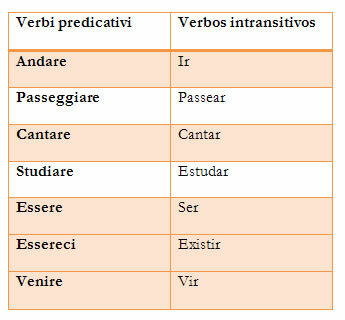It is important to mention almeno when in the south of this argument, it sews sleep i principle essenziali di a testo and quali sleep i loro significati. Così, potrai own identify if il tuo testo il testo di altrui viene consider un buon testo. Osserva sotto il significato della parola testo. / It is important to understand, at least when talking about this topic, what the essential principles of a text are and what their meanings are. This way, you can identify yourself if your text or someone else's text is considered good. Note the meaning of the word text below.
Meaning: / Meaning: * “I testo is l'unità della nostra actività linguistica, un’unità che corresponde ad una determinata communicative intention and che si distinguishes from the phrase non both quantitatively and piuttosto qualitatively. The test is born out of a delicate balance of continuity and a lack of progress (di svilupo). The test is an insieme di phrasing, ma può consist of a sole sentence, purché this abbia compuuto sense and rappresenti a messaggio che l'emittente considers complete.”
/ The text is a unit of our linguistic activity – a unit that corresponds to a certain communicative intention and which differs from the phrase not so much quantitatively, but in terms qualitative. The text is born from a special balance between a demand for continuity and a demand for progression (of development). The text is a set of sentences, but it can also consist of a single sentence, if this has a complete meaning and represents the message that the sender considers complete.*Information taken from Grammatica Italiana con nozioni di linguistica.
Quali sleep i principle essenziali di a buon testo? / What are the essential principles of a good text?
I principi essenziali che un testo must possedere sleep: coesione, coerenza, intentionalità, accettabilità, informatività, situazionalità and intertestualità. Però, you commandeer perché essi important sleep and quali sleep le loro funzioni al testo, the response is simple: senza loro il tuo testo o qualsiasi altro sarebbe considerato senza sensu, lasciandolo monotono, complesso da capirci and mainly senza legame tra idee o riflessioni. Senza loro, hereby testo non-avrebbe, davvero the funzione di communicate the transmettere a concept of comprehensible way. Osserva sotto i concetti sull’accettabilità and sull’informatività./ The essential principles that a text must have are: cohesion, coherence, intentionality, acceptability, informativeness, situationality and intertextuality. However, you will wonder why these are important and what their functions are in the text; the answer is simple: without them, your text or any other would be considered meaningless, leaving it monotonous, complicated to understand and mainly without ideas or reflections linked to each other. Without them, your text would not truly have the function of communicating or conveying a concept in an understandable way. Note the concepts of acceptability and informativeness below.
Do not stop now... There's more after the advertising ;)
|
Puntata! / Tip! It is possible to access the site and know the concept of cohesion, coherence and intention al testo: “Parti costitutive di a testo” . / It is possible to know the concepts of cohesion, coherence and intentionality in the text: “Parti costitutive di un testo”. |
 Accettabilità / Acceptability
Accettabilità / Acceptability
The accettabilità is the beginning of the funziona with rapport all-atteggiamento del ricevente all the ricevuta di un messaggio comprensibile, ossia, the transfer must possedere elementi coesivi e coerenti e così si facendo la communicate. Insoma, if I can tell you this principle, it is possible for the recipient to accept it che è transmesso da un testo parlato o scrito attraverso il loro contesto enviroe (cultural e/o sociale). / Acceptability is the principle that works with respect to the receiver's attitude to receiving a message understandable, that is, the transmission must have elements of cohesion and coherence, thus achieving the Communication. In short, it can be said that this principle is the recipient's expectation to understand or accept what is transmitted from a spoken or written text, through its environmental context (cultural and/or Social).
 Informativita / Informativity
Informativita / Informativity
This principle is soggetive abbastanza, perché is the legacy of what we got to know and it's our aspettative aspect of what is verità in ai nostri giorni. If I say oggi the sentence: 'I'll phone non esiste', l'informatività of the sentence is abbastanza grande, perché goes out già che questo apparecchio al secolo XXI. Però, if I say: 'Il telephone not esisteva fino alla fine del selo XIX', only facing a rivalry south contest cui viene stata scritta la sentence. L’informatività is davvero the way or the misura cui il testo raggiunge a fact notono noi. / This principle is quite subjective, because it is the link between what we know and our expectations of what is currently true or not. If I say to you, today, the phrase: ‘The telephone does not exist’, the informativeness of the phrase is quite large, because you already know that this device exists in the 21st century. However, if I say to you: ‘The telephone did not exist until the end of the 19th century’, I am reassessing the context in which the sentence was written. Informativity is, in fact, the way or the extent to which the text reaches a fact known or not to us.
Isabela Reis de Paula
Brazil School Collaborator
Graduated in Languages with Qualification in Portuguese and Italian
By the Federal University of Rio de Janeiro - UFRJ



